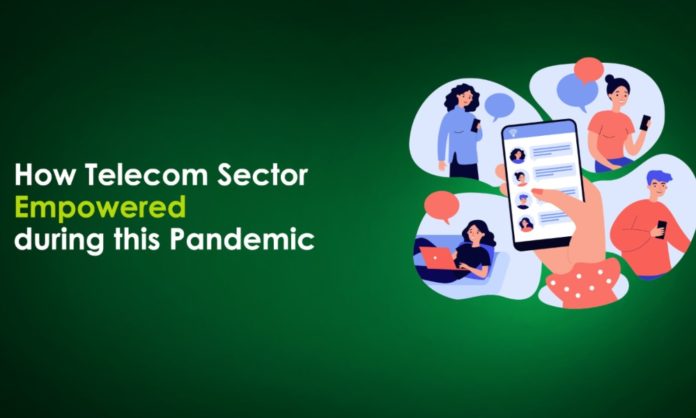When the COVID-19 was initially discovered in China, no one could understand or comprehend the havoc this virus would have on humanity at large. The world gradually realized the importance of taking protective steps such as SOPs that were required to be taken to safeguard oneself against the virus. World Health Organization (WHO) had identified these measures to be the best defense against the pandemic at the time.
However, if it wasn’t for the IT and telecom sector, the world would have been in a much more critical situation as the identified SOPs wouldn’t have been communicated as quickly and as efficiently across the globe if we did not have the ability to stay connected with each other and also with other countries in these dire circumstances.
After China successfully contained the virus to its minimum carriers, the same practice was shared by the rest of the world through real-time knowledge sharing amongst the healthcare specialists around the world. Later, New Zealand became the first country and a success story to literally have zero cases related to COVID-19. This feat was achieved through efficient use of communication channels using its telecom sector to spread the relevant information promptly to all its citizens.
Similarly, ICTs in Pakistan were able to empower its citizens to stay home and manage all their social, professional, and personal activities through digital means. This is truly a proud moment when one claims that the telecom sector has empowered the masses during the pandemic. Mobile users alone switched to online shopping and favored online entertainment quite instantaneously, during the social lockdowns imposed by the Government of Pakistan under the guidance of national healthcare service providers.
In the post-pandemic scenario, digitization will continue to remain crucial as we lead our lives in the new world. In the ‘New Normal’, we hope to go out and resume meeting relatives and friends, but only by maintaining social distancing and by avoiding crowded places. We may gradually return to our workplaces, but we will continue to stay digital more than ever before. Our children may gradually return to the classrooms, but this will be combined with a more online educational activity as well.
Ultimately, we will continue to use telecom services more than we used to before the pandemic. This is a big reason, PTCL being the national telecom service provider in Pakistan, remained at the forefront of tackling this pandemic whether it was to empower its employees or stand with the nation. The company took no time to facilitate its consumers to work from home and also help in facilitation in education through online classes. Online bill payment systems and joint ventures with Nokia, Huawei, etc. enhanced the customer care experience exactly when they needed it the most. Not only that, it collaborated with global digital platforms to support its massive consumer base to stay home and safe during the pandemic.
Since the digital infrastructure is now a fundamental component for the economic resilience, health and safety of our people, it is of paramount and significant step to close the connectivity gap in remote areas of Pakistan. It requires action from provincial governments, regulators, and telecom operators to come together as strategic allies and achieve the objective of consumer safety and empowerment in its true sense.











































